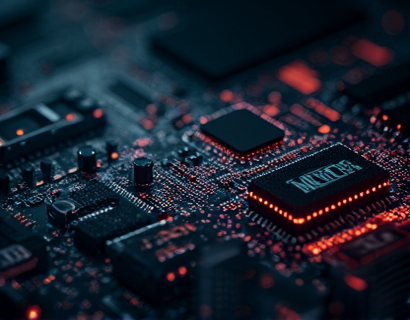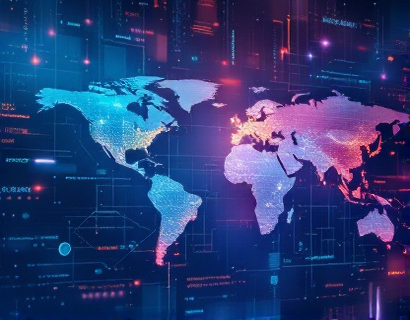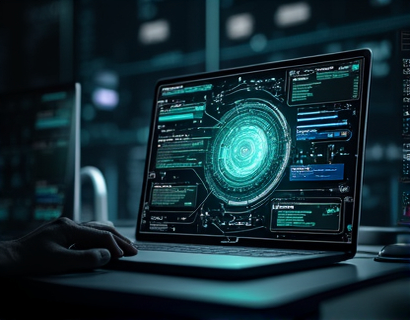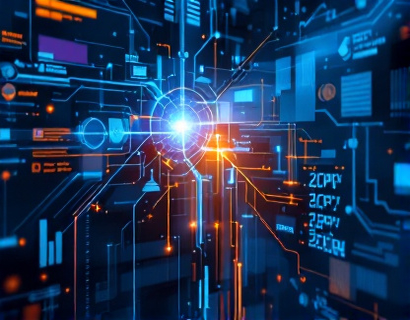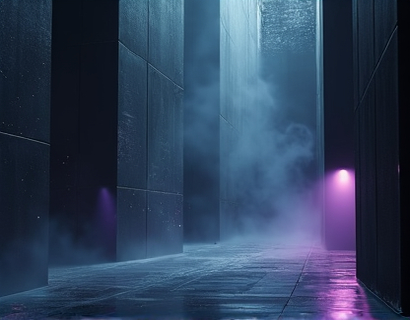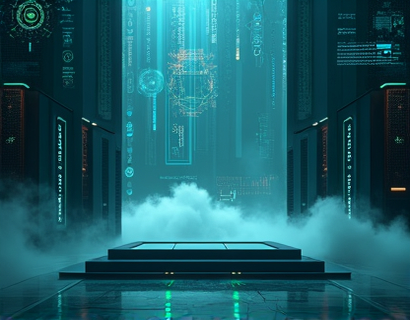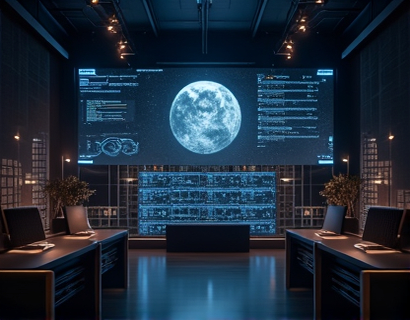Embracing the Future of Memorialization: AI and Blockchain for Lasting Online Tributes
The concept of memorialization has evolved significantly with the advent of technology, offering new dimensions to honor and remember those who have passed away. Traditional methods, such as physical monuments and memorial services, are being complemented by innovative digital solutions that leverage advanced technologies like Artificial Intelligence (AI) and Blockchain. This article delves into the intersection of AI and Blockchain to create secure, personalized online tributes, providing a unique and meaningful way to honor memories and provide lasting legacies for the departed, while offering comfort and innovation for the living.
Understanding the Need for Digital Memorials
The loss of a loved one leaves an indelible mark on families and communities. The need for meaningful ways to remember and honor the deceased is universal. Traditional memorials, while cherished, have limitations in terms of accessibility, preservation, and personalization. Digital memorials address these gaps by offering a platform that can be accessed from anywhere, preserved indefinitely, and tailored to the unique memories and personality of the individual being honored. The integration of AI and Blockchain technology in digital memorials brings a new level of security, personalization, and innovation to this field.
AI in Memorial Creation: Personalization at Its Best
Artificial Intelligence plays a pivotal role in creating personalized digital memorials. AI algorithms can analyze vast amounts of data, including photos, videos, texts, and social media posts, to curate a comprehensive and authentic tribute. This process involves several steps:
- Data Collection: AI systems gather information from various sources, ensuring a holistic view of the deceased's life.
- Content Analysis: Advanced algorithms analyze the collected data to identify themes, emotions, and significant events.
- Personalized Content Generation: Based on the analysis, AI can create personalized content such as timelines, photo galleries, and even written tributes that capture the essence of the individual.
- Interactive Elements: AI can also incorporate interactive features like virtual reality (VR) experiences or chatbots that simulate conversations with the deceased, providing a unique and emotional connection for visitors.
These AI-driven features ensure that each digital memorial is a true reflection of the person it honors, offering a deeply personal and emotional experience for those who visit.
Blockchain for Security and Immutability
Blockchain technology is renowned for its security and immutability, making it an ideal solution for ensuring the longevity and integrity of digital memorials. Here's how Blockchain contributes to this process:
- Decentralized Storage: By storing data across a network of computers, Blockchain eliminates the risk of data loss due to server failures or cyber-attacks.
- Immutable Records: Once data is recorded on the Blockchain, it cannot be altered or deleted, ensuring that the memorial remains unchanged and authentic over time.
- Transparency and Trust: The transparent nature of Blockchain allows all authorized users to verify the integrity of the memorial, fostering trust among family members and friends.
- Access Control: Blockchain enables fine-grained access control, allowing creators to determine who can view and interact with the memorial, ensuring privacy and respect for the deceased's wishes.
Combining AI and Blockchain creates a powerful synergy that not only personalizes the memorial but also secures it against potential threats, ensuring that the tribute endures for generations to come.
Creating a Seamless User Experience
The platform that integrates AI and Blockchain for digital memorials is designed with the user in mind, offering a seamless and intuitive experience:
- User-Friendly Interface: The platform features a clean and intuitive interface that guides users through the memorial creation process, from initial setup to final customization.
- Step-by-Step Assistance: AI-powered chatbots and guided tutorials assist users at every step, making the process accessible even for those unfamiliar with technology.
- Collaborative Features: Family members and friends can collaborate in real-time, contributing their memories and photos to create a comprehensive tribute.
- Customization Options: Users can choose from a variety of templates and design elements to personalize the appearance of the memorial, ensuring it reflects the personality of the deceased.
These features ensure that creating a digital memorial is not only meaningful but also a manageable and enjoyable process for those who are grieving.
Preserving Memories for the Future
One of the most significant advantages of digital memorials is their ability to preserve memories for the future. Unlike physical memorials that can deteriorate over time, digital tributes remain intact and accessible indefinitely. The combination of AI and Blockchain ensures that these memories are not only preserved but also protected from tampering and loss:
AI's role in content curation and management ensures that the memorial remains up-to-date and relevant, while Blockchain's immutable ledger guarantees that the data remains unchanged and secure. This dual approach provides a robust solution for long-term preservation, allowing future generations to connect with their heritage in a meaningful way.
Emotional and Psychological Benefits
The emotional and psychological benefits of digital memorials are profound. For the bereaved, these platforms offer a space to express grief, share memories, and find solace in the collective remembrance of their loved ones. The interactive features, such as virtual visits and personalized messages, provide a sense of closeness and continuity:
For children and younger family members, digital memorials can serve as educational tools, helping them understand and process the loss in a structured and supportive environment. The AI-driven content can also spark conversations about life, death, and legacy, fostering emotional growth and resilience.
Moreover, the accessibility of digital memorials allows people from different parts of the world to participate in the remembrance process, creating a global community of support and shared memory.
Innovation in Memorialization: The Way Forward
The integration of AI and Blockchain in digital memorials represents a significant leap forward in the field of memorialization. This technology-driven approach not only enhances the personalization and security of online tributes but also addresses the emotional and practical needs of the bereaved:
- Innovative Personalization: AI's ability to curate and generate personalized content ensures that each memorial is a unique reflection of the individual.
- Enhanced Security: Blockchain's immutable and decentralized nature provides unparalleled security and preservation of the memorial.
- Global Accessibility: Digital memorials can be accessed from anywhere, allowing a global community to participate in the remembrance process.
- Emotional Support: Interactive features and collaborative tools offer emotional and psychological support to those who are grieving.
As technology continues to evolve, the potential for even more advanced and personalized memorial solutions is vast. The combination of AI and Blockchain sets a new standard for digital memorials, offering a future where honoring the deceased is both meaningful and innovative.
In conclusion, the fusion of AI and Blockchain in creating digital memorials represents a transformative approach to memorialization. This technology not only preserves memories in a secure and personalized manner but also provides comfort and a sense of continuity for the living. As we embrace this future, we can ensure that the legacies of our loved ones are honored in ways that are both enduring and deeply personal.



